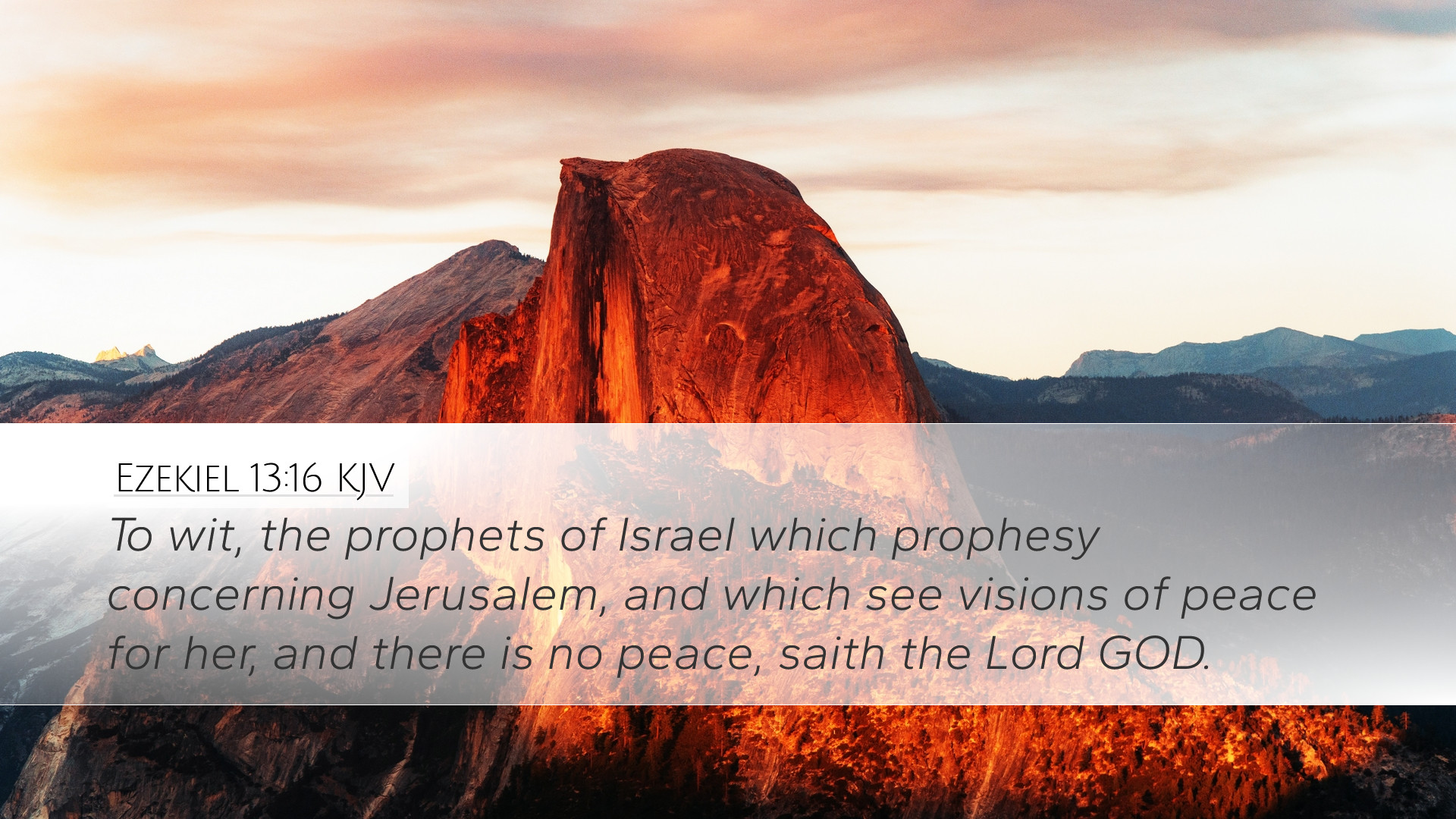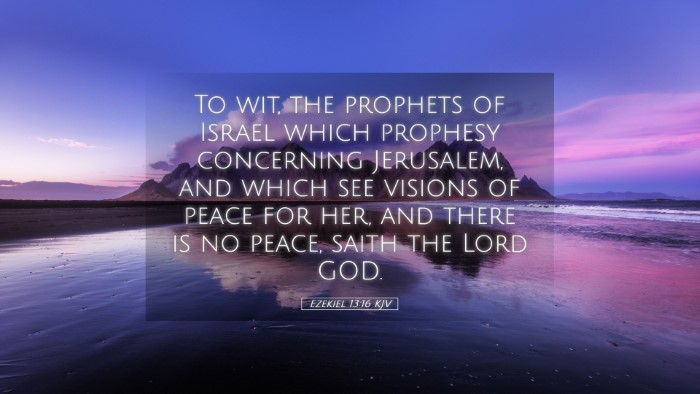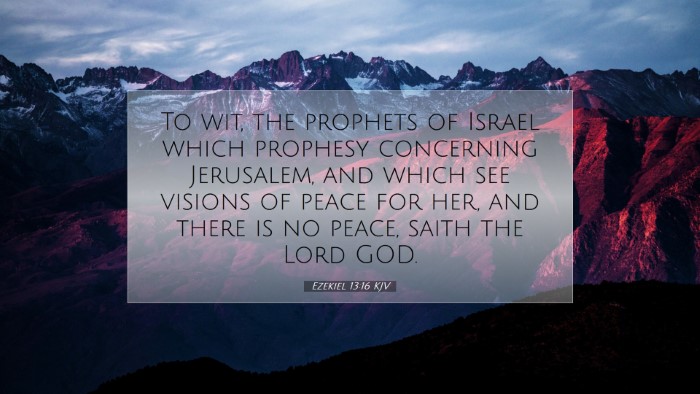Ezekiel 13:16 Commentary
Verse Text: "The prophets of Israel who prophesy concerning Jerusalem, and who see visions of peace for her when there is no peace, declares the Lord." (Ezekiel 13:16)
Understanding the Context
This verse is rooted in the broader context of Ezekiel's prophetic mission, which takes place during the Babylonian exile of the Israelites. The chosen prophet, Ezekiel, serves as a conduit of God's judgment against Israel, issuing warnings to a people who have strayed from divine truth. This particular passage highlights the role of false prophets who mislead the people with messages of peace amid impending judgment.
Insights from Matthew Henry
Matthew Henry emphasizes the dangers posed by false prophets who claim to speak for God. These prophets provide false security through their deceptive visions, asserting peace in times of destruction. According to Henry, this reflects a broader trend where leaders and spiritual guides fail to recognize the spiritual decline and the consequential divine judgment awaiting their people.
- Deception in Prophecy: Henry notes that such false prophecies are rooted in personal desire rather than genuine divine revelation, leading the people astray.
- Conditional Peace: The message of peace proclaimed by these prophets is conditional and misleading, as it does not align with God's ongoing judgment upon the nation for its sinfulness.
Insights from Albert Barnes
Albert Barnes’ commentary highlights the theme of divine judgment juxtaposed with the false proclamations of peace. Barnes elaborates on the nature of false prophets, asserting that they often arise in times of crisis, offering reassurance that God has not abandoned His people.
- Misrepresentation of God’s Will: Barnes points out that these prophets misrepresent God's intentions, claiming to see revelations that contradict the reality of divine judgment.
- Warning Against False Security: He warns that such messages create a dangerous complacency among the people, leading them to ignore the seriousness of their moral and spiritual condition.
Insights from Adam Clarke
Adam Clarke provides a more in-depth analysis of the implications of the false prophets' actions. He asserts that their proclamations stem not just from a failure to perceive God’s will, but from a deliberate choice to mislead the people for personal gain.
- Accountability of Prophets: Clarke stresses that those who claim to speak on behalf of God carry a heavy burden of responsibility and will face judgment for misleading the faithful.
- Rejection of Genuine Prophecy: The false assurances given by these prophets lead people to reject true prophetic voices that call for repentance and true peace found in alignment with God's will.
Theological Implications
This verse not only addresses the immediate historical context of Israel's prophetic figures but also serves as a timeless warning about the nature of prophetic ministry. The theological implications are significant for contemporary faith communities.
- Discernment in Prophecy: This passage emphasizes the necessity of discernment in recognizing true versus false prophecy, urging believers to hold teachings up against Scripture.
- The Role of Judgment and Repentance: It highlights the importance of acknowledging God's righteousness and the necessity of repentance as a path to genuine peace.
- Integrity of God’s Word: The integrity of proclaiming God’s truth is emphasized, reminding pastors and leaders of their duty to convey messages rooted in Scripture without compromise.
Practical Applications
For pastors and spiritual leaders, this passage serves as a critical reminder of the responsibility that comes with ministry. Here are some practical applications drawn from this verse:
- Faithfulness to God’s Word: Leaders should commit to preaching the full counsel of God, ensuring that their messages reflect the truth of Scripture, even when such truth is challenging to present.
- Encouraging Repentance: They must encourage congregations to engage in self-examination and repentance, aligning their lives with God’s righteousness rather than pursuing comfort in false assurances.
- Pursuing Discernment: Pastoral care must include teaching the flock to discern the spirits, ensuring that congregants are equipped to identify teachings that align with or deviate from biblical truth.
Conclusion
Ezekiel 13:16 serves as both a historical snapshot of Israel's struggles with false prophets and a timeless reflection for contemporary faith communities. The warnings imbued in prophetic declarations convey urgency about the nature of discernment, the authenticity of prophetic voices, and the genuine peace that only comes through alignment with God's will. Pastors, students, and theologians can glean a profound understanding of God's expectations for His people, seeking to live lives that honor His truth above the deceptive comforts of false proclamations.


